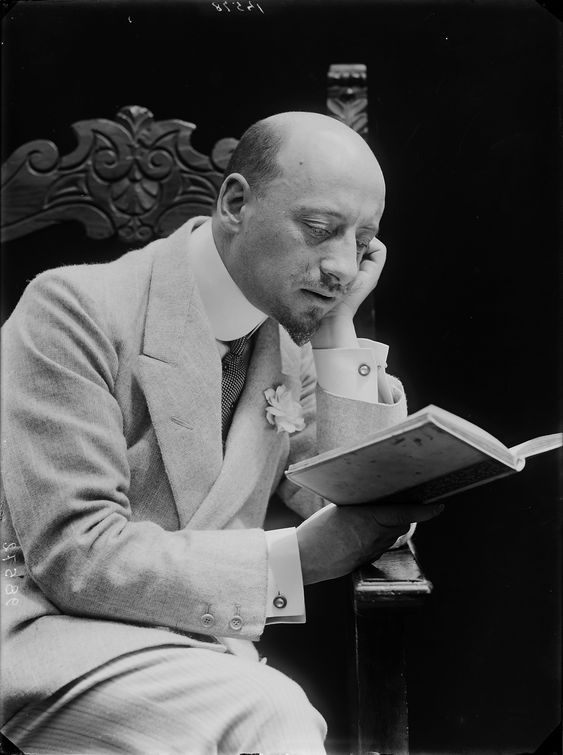
Social and Literary Dandyism
Littell’s Living Age, 1880
Article unsigned
Dandies, like saints, are never much beloved by their fellow-creatures. Like saints, they have an ideal perfection of manner and dress, and ideals are felt to be impertinent. To be a dandy is to outrage the vanity of every one who has not the energy to be wakefully attentive to details of deportment and costume.
The great dandies of old days, Brummell, Lauzun, and the rest, were everywhere welcomed because they made themselves disagreeable to so many people. There is a kind of popularity which is acquired by an attitude provoking unpopular. Men and women are attracted by the courage which despises and disregards their feelings. People whose minute perfections and sense of their own merit make them detested, become notorious, and consequently are sought after. A sage might say to aspiring boyhood, “Young man, be a puppy.”
In this respect, as in others more important, the prizes of the world are to the impudent. Society truckles to people who can consistently display their conscious superiority. The very magnitude of their insolence and calmness of their fatuity excite curiosity and welcome analysis. People are anxious to judge for themselves as to whether a conspicuously conceited fellow is in earnest and a supreme fool, or whether he is quietly playing a part. Thus the eccentricity of imperturbable vanity, a vanity which declares itself in peculiarity of dress and manners, is rather a good introduction to society.
A famous living statesman was remarkable for his canes and waistcoats even before he was admired or feared for his wit or eloquence. Dandyism was to him only a stepping stone, as it usually is to young people high ambition and real strength of character. They learn very early in life that to be remarked is the first thing necessary for success, and social is of of course more readily attained than literary or political notoriety, and may lead on to these higher prizes. It would probably be a mistake to suppose that “the higher dandyism” is entirely a matter of calculation. The most distinguished dandies in the history of society have been men of great power and ambition disguised as fops. They have thus disguised themselves, not only because the distinction gained by impertinent perfection of dress was necessary to their projects, but because they could not do anything by halves, and because they were supremely vain. Vanity, a quality much decried, is really necessary for some sorts of success. Without vanity there could scarcely be any ambition.
In the evolution of character vanity first declares itself in the love of finery which is remarkable in the child and the savage, and which clings to many generals, statesmen, and divines. The gigantic tailor’s and jeweler’s bills of a son do not usually make a parent’s heart sing for joy; but these bills may, in rare cases, be more full of promise and encouragement than any number of medals and first-classes. It is difficult, however, to get parents and guardians to take this hopeful view, and the young genius for dandyism, like genius for the other arts, is too often persecuted by indignant and terrified relations.
A young man is never more certain of social success than at the moment when most other young men never mention him without saying that they “would like to kick him.” As Thackeray observed in the case of Pendennis, that desire is the result of envy and of conscious humiliation awakened in manly bosoms. To provoke people so much is a token of superiority, and a prize of nonchalance. Nor is it social dandyism alone which thus irritates the rabble of decent fellows who have neither the vanity, nor the impudence, nor the strength of resolution to win distinction. Literary dandyism is also excessively annoying to the rugged hodmen of letters, the rapid picturesque writers, the half or quarter educated persons who crowd the press, and carry their farrago of ill-assorted observations to an uncritical public. These industrious persons detest the literary dandy, the man who minds his periods, and regards the cadence of his sentences, and shuns stock illustrations and old quotations, as the social dandy avoids dirty gloves and clumsy boots. They howl at him as the little humorous street boys bully some small Etonian with a tall hat and a broad white collar, who has lost himself in Seven Dials. This antagonism naturally breeds more excess in literary dandyism, till the prose of some critics is full of musk or millefleurs as the handkerchief of a popular preacher. Both parties are hardened in their ways; the rough and ready press-man becomes careless even of grammar, and trots out his quotations from Macaulay’s essays more vigorously than of old. The prose of the exquisite begins to die away in aromatic nonsense, and his great genius tries itself to death in the hunting for rare exotic adjectives.
There have been schools of literary dandyism, there have been literary dandies, more robust than those of our time. Where we can show nothing much better (if Mr. Arnold belongs to an earlier generation) than Mr. Dowden and Mr. Pater, the great literary ages can boast of Plato, Catullus, Ronsard, Pascal, Horace Walpole, Sir Philip Sidney — nay, one might add, Buffon and Machiavelli. The two last named may be recognized as literary dandies because they respected the mere details of their literary labor. They were not of the sect that swears by tattered old slippers that toast at the fire, and ragged old jackets perfumed with cigars. They arrayed themselves in fine linen, if not in purple, before they sat down to describe the animal kingdom or give rules for the conduct of the prince.
The other writers, whose names we have taken very much at random from a crowd of the greatest authors, were dandies in style, exquisites in literary manners, precisians, who turned away from what was commonplace in though. They lived among slipshod writers, or in ages when all the world scribbled, or in times when style was disregarded, or not invented, and they set themselves to seek after grace and distinction. One can imagine how the Athenians, who were accustomed to the harsh and niggardly style of the old chroniclers, or the half-developed prose of Herodotus, laughed at Plato. That philosopher, if the portrait-bust of him does him no injustice, was very carefully about the dressing and curling of his ambrosial locks. It is more certain that he must have given immense labor to the perfection of his style, to that instrument of extraordinary suppleness and grace which was derived from no model. The tradition says that the first clause of the “Republic” was found written in nine different ways in a notebook of Plato’s. Whether the legend be true or not, the polish of his manners and the “educated insolence” of his wit sufficiently mark Plato as the great father and patron of all literary dandies.
Catullus was not less a literary exquisite, with his airs of a spoiled wit, and his style, like his novum libellum, arida modo pumice expolitum. He naturally takes his place among homines venustiores, among gentlemen who care for the attire of their thoughts, who let the toga trail with a delicate grace, and despise all muses inlepid atque inelegantes. The famous Pleiad of France, the seven poets and critics of the sixteenth century, was a coterie of literary dandies. They made it their business to care for the way in which thoughts were presented; they devised lace and jewelry of style and of versification; and boasted of ceste celeste maniere de escrire, a celestial transcendental manner of writing. Du Bellay ventured to discover that the old French of Froissart and Villon was scabreux et mal poly, and he and his friends were only the precursors of three or four successive schools of literary dandies in France. Who can consider the polish, the precision, the accuracy of that speech, its point and elegance, which make even dull writers seem witty, and fail to acknowledge that the work of the literary dandies has not been wholly wasted?
Some advantage came of the conceit and careful periods even of the elder Balzac. And though the great Balzac of a later time is more remarkable for vigor than elegance, it was at perfection that he too aimed. Plato did not rewrite his sentences more frequently; and the ruin of at least one publisher, by Balzac’s expensive corrections of the press, proved how minutely careful he was to have his thought draped in the very best and richest language he could procure by incessant research. Our own revival of letters had its heroic dandy in Sir Philip Sidney, with his contempt for the slovens and grobians of literature, those “paper-blurrers” who, “by their own disgracefulness, disgrace the most graceful of Poesy — Sidney’s — censure of the dramatists of his time is a typical example of the scorn of the literary dandy of the nobler sort. “Now you shall have three ladies walk to gather flowers, and then we must believe the stage to be a garden. By-and-by we hear news of a shipwreck in the same place; then we are to blame if we accept it not for a rock. Upon the back of that comes out a hideous monster with fire and smoke, and then the miserable beholders are bound to take it for a cave; while, in the mean time, two armies fly in, represented with swords and bucklers; and then, what hard heart will not receive it for a pitched field?”
It would be easy to carry on the history of literary dandyism. The elegant disdain of Pascal, and his care for polished insolence of irony, might lead us to the reserved conceit and minute toil of Gray, and thence we might pass to the fine gentlemanly literature of Walpole. Modern France had its school of dandyism under the master whom Ouida and the society journals call by the appropriate name of Baudelaire. It might probably be demonstrated that literary dandyism has been salutary as well as irritating, that it has served as a protest against the lax language and outworn commonplace of the press-man and the poetaster, and that, like ordinary dandyism, it has made its disciples more distinguished among than beloved by their literary brethren.

